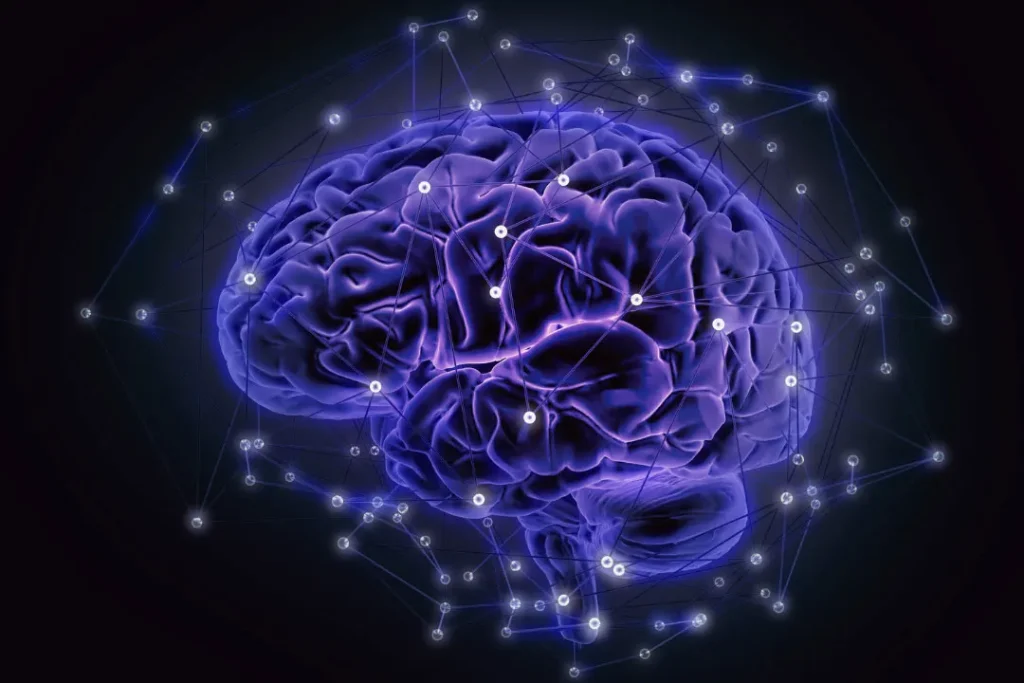Non restorative sleep is a sleep disorder associated with tiredness and lack of energy during the day despite getting enough hours of sleep. We’ll discuss some great ways to get the quality rest you need so that you can wake up refreshed and energized.
Non restorative sleep is defined as the subjective feeling that sleep has not been sufficiently refreshing, despite the appearance of physiologically normal sleep. Although the mechanisms of non restorative sleep are unclear, many theories relate its etiology to the restorative theory of sleep function. There are few physiological markers that can be used to diagnose this disorder, so diagnosis relies entirely on subjective patient reports. Non restorative sleep has been linked to a wide range of cognitive, affective, and medical complaints.
You May Also Like:
Finding The Best Alpha GPC Supplement
DELTA BrainLuxury™ Wins Best Sleep Support Supplement Product
Sleep disturbances can take a toll on mental health, potentially resulting in impairments such as short-term memory loss, irritability, and depression. Poor sleep quality also negatively impacts cognition and productivity, potentially leading to frustration and sadness. It is important to note that sleeping difficulties can precede or be exacerbated by certain chronic pain conditions. A non restorative sleep scale was developed and validated to assess the effects of non restorative sleep. The development and validation of this scale is an important step towards better understanding and addressing the issue of non restorative sleep.
Exercise helps improve sleep
Fortunately, there are lifestyle strategies that can help abate non restorative sleep. Several meta-analyses have been published in literature regarding non restorative sleep, with recommendations including limiting screen time (whether on TV or computer) before bed and creating a cool, dark sleep environment. Research has shown that exercising for at least 30 minutes twice a week over a period of one year can reduce the risk of non restorative sleep.

Develop regular sleep schedules
Maintaining a regular (and appropriate) sleep schedule has been shown to help alleviate non restorative sleep. For example, people who follow a schedule of not skipping breakfast, eating dinner at least two hours before bedtime, and refraining from snacking after dinner are more likely to experience restorative sleep.
Sleep apnea and lung disorders may affect sleep
If you are experiencing non restorative sleep, it’s important to consult a physician for a sleep apnea assessment or evaluation of lung disorders that could reduce the level of oxygen in your blood. These conditions may contribute to other health disorders, including weight-related issues, dyslipidemia, cardiovascular disease, hypertension, type 2 diabetes mellitus, and metabolic syndrome.

Integrated Behavioral Health for non restorative sleep
Sleep is essential for overall health, productivity, and happiness; quality sleep is crucial to reap its full benefits. By incorporating mental health as a standard component of primary healthcare, many medical conditions may be prevented or more effectively managed while reducing the social stigma associated with behavioral health treatment. Integrated Behavioral Health should be a key component of any primary care provider’s practice, as it stands to benefit a large portion of the population.
In 2010, the Army implemented Army Medical Homes, which provides integrated behavioral health services, improving the accessibility and quality of preventive care and behavioral health services for all beneficiaries.

Medication to treat non restorative sleep
While cognitive behavioral therapy can be a good way to treat ongoing insomnia, several lifestyle modifications can help mitigate non restorative sleep; these include sleeping on a regular schedule, regularly exercising, avoiding caffeine later in the day, avoiding daytime naps, and managing stress. That said, in certain cases, prescription sleep medication may be necessary. It is common to use benzodiazepines to treat insomnia, but withdrawal syndrome with rapid eye movement (REM) rebound can occur.
Zolpidem and Zaleplon are two benzodiazepine-like drugs that have fewer side effects, but they are still hypnotics and can be habit-forming. Daridorexant is a newer prescription drug sold under the trade name Quviviq®; it is not a benzodiazepine but a scheduled controlled substance and may also be habit-forming.
Alternatively, numerous supplement options are available to help alleviate non restorative sleep. These options include but are not limited to melatonin (naturally occurring in humans), tryptophan, B complex vitamins, vitamin D, and magnesium glycinate. These supplements have been reported in literature as effective in helping maintain quality sleep. DELTA BrainLuxury is a premium sleep supplement that combines all of the foregoing supplements, along with omega-3 fatty acids, in a liquid concentrate without melatonin.
This concentrate, taken one to two hours prior to sleep, helps the body produce melatonin and serotonin to actuate a healthy sleep. BrainLuxury supplements, particularly DELTA, are formulated based on prior clinical research on the individual components as well as self-assessment questionnaires from the customers integrated with sleep tracker studies.

A final word on non restorative sleep disorder
Individuals with non restorative sleep disorder often experience a feeling of fatigue, even after getting enough sleep. Treatment for this condition generally focuses on enhancing the quality of sleep and lessening accompanying symptoms, such as difficulty concentrating and tiredness. The first step is usually identifying and managing any medical or psychological problems that may contribute to the disorder. Cognitive-behavioral therapy for insomnia, relaxation techniques, and proper sleep hygiene are possible solutions. Medication might also be necessary in certain cases, including sedatives, antidepressants, and stimulants.
Before starting any supplement regimen, consider the quality of the source and consult with a healthcare professional or registered dietitian who can provide guidance on which supplements may be beneficial and safe for you based on your medical history, current medications, and individual requirements. Popular supplements that people take include vitamins, minerals, herbal supplements, probiotics, and omega-3 fatty acids. However, it is important to note that not all supplements are effective or safe for everyone; some may even have potential negative interactions with other supplements or medications.
A holistic approach that includes lifestyle modifications, therapeutic practices, and medication, if required, can be successful in treating non restorative sleep disorder and improving the quality of life for those affected by it.

Further reading:
Harvard Medical School: Supplementing your sleep
JAMA Internal Medicine: Prevalence and Correlates of Nonrestorative Sleep Complaints
Consumer Reports: The Truth About Popular Sleep Supplements
Science Direct: Effective non-pharmaceutical approaches to restorative sleep for healthcare professionals
Important Note: The information contained in this article is for general informational purposes only, and should not be construed as health or medical advice, nor is it intended to diagnose, prevent, treat, or cure any disease or health condition. Before embarking on any diet, fitness regimen, or program of nutritional supplementation, it is advisable to consult your healthcare professional in order to determine its safety and probable efficacy in terms of your individual state of health.
Regarding Nutritional Supplements Or Other Non-Prescription Health Products: If any nutritional supplements or other non-prescription health products are mentioned in the foregoing article, any claims or statements made about them have not been evaluated by the U.S. Food and Drug Administration, and such nutritional supplements or other health products are not intended to diagnose, treat, cure, or prevent any disease.


